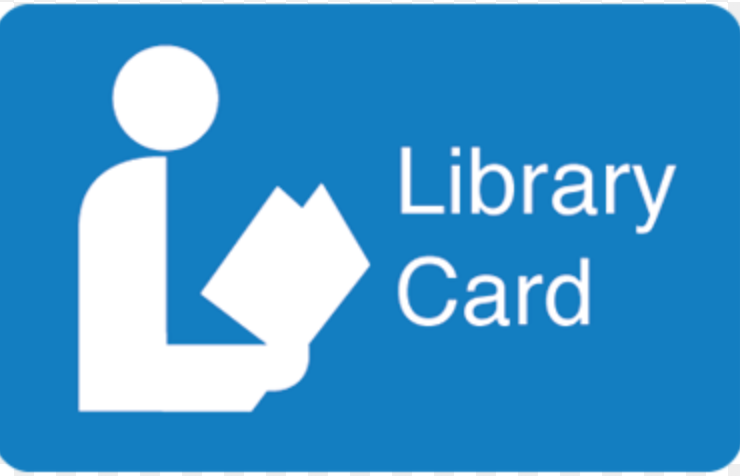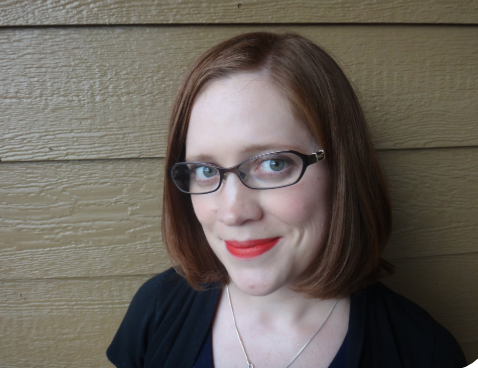
A virtual library card is needed for the legions of working professional nurses who must be current in our practice. However, our access to the very journals that hold the most cutting edge, evidence-based nursing practice (EBP) is inaccessible once we graduate. Of course, we can purchase individual subscriptions to journals, but that financial burden is often elusive for nurses who are paying off massive student debt.
This important issue was raised on Twitter by public health nurse Melanie Rogers. She shared her frustration at no longer having access to important nursing journals that she had at her fingertips during her graduate program. Once she completed her MPH, the door to EBP closed. This was Melanie's well-founded Twitter-rant that caught the attention of fellow nurses:
https://twitter.com/MRogersRN/.../1109571333262761984
Nurse Media Strategist, Barbara Glickstein encouraged Melanie to deepen the discussion and create a unique hashtag that tracks the cause. Within a very short period of time, the hashtag #NoJournalsNoEBP began to trend on Twitter. Melanie is my guest blogger this week. She has written a compelling perspective piece that supports the reasons for providing nurses access to scientific and nursing journals that guide our nursing practice. #VirtualLibraryCard
In nursing school, we are all taught the importance of evidence-based practice (EBP). It is not enough to know how to do a task or skill correctly, it is also necessary to know -why- we, as nurses, do the things we do. We must understand the evidence behind EBP, and that requires access to a breadth of relevant and timely scientific literature of our nursing discipline.
Unfortunately, after nursing school, many of us lose our access to this valuable resource. My alma mater did not provide alumni access to the digital collection of scientific journals after I was no longer a student. Working in the field of public health nursing since finishing nursing school has required that I be up to date in both nursing and public health research. It was not until I went back to school for an MPH degree that I regained access to online collections of scientific journals through my new university. The positions I have worked in have been at the local county health department level. These facilities often struggle for funding of programs and clinic services for the underserved and the staff to provide them, and certainly cannot afford to spend the equivalent of a full-time employee salary to maintain subscriptions to multiple publishing companies for their staff year after year.
As I am sure many nurses who do not have an academic affiliation experience, when I finished graduate school, I was right back where I was after nursing school – minimal online journal access. Open access journals do exist, and there are other resources. The CDC website provides a wealth of information relevant to many nursing specialties, and resources like The Community Guide (thecommunityguide.org/ ) provides information on EBP for public health workers. Some of us might be lucky enough to have coworkers who are current students that are willing to grant us favors by finding an article behind a paywall. Study authors can send you a copy of their papers if you ask directly. The more tech-minded among us might even search on resources like ResearchGate or SciHub that bypass the publishing industry altogether.
These solutions are piecemeal. Nurses in practice should not have to resort to favors from coworkers and backdoor hacks to have access to scientific journals to maintain their knowledge of current best practices in their specialties. I remember in nursing school hearing my professors say that it often takes a decade for research to be translated into practice, and now that I see the barren scientific literature landscape that so many nurses in practice operate within, I understand why.
The care of individuals, families, and communities suffers for having nurses who cannot maintain the most up to date knowledge on best practices and current clinical knowledge. Patients should not have to teach us about their conditions. Such requirements shake patient trust in our nursing care and may contribute to further health disparities and inequities experienced by many populations.
Nurses in practice are often called upon to help train the future workforce by acting as preceptors to nursing students. We do not usually get extra pay from our employers for taking students, and the schools of nursing certainly do not pay us for this instructional time. Yet, many nurses, including myself, are happy to do it. We enjoy teaching and working with nursing students and want to pay it forward to the next generation. How can we do right by our students if we lack access to timely peer-reviewed literature to maintain our EBP?
The eighth essential service of public health is “assure a competent public and personal health care workforce.”1 That is a lofty charge for this public health nurse! It is frightening to think that I may have passed on outdated information or techniques to the nursing students I precepted before I started graduate school and had access to the literature again.
There is no single solution to the problem of nurses in practice lacking access to scientific literature. I would propose three ways to start addressing this issue: First, schools of nursing must offer their alumni access to the academic libraries the same as they did while they were students at no cost. Graduates have already paid thousands of dollars to the school of nursing – their library access has already been paid for and should continue as a lifelong learning benefit. The library access must also be available online and not only on the physical campus. Graduates may move on in their lives, but their commitment to lifelong learning as nurses stays with them wherever they may take their careers.
Second, schools of nursing should work with the community institutions and agencies they send their nursing students to for clinical placements to provide free institutional logins for the academic library to their community partners. Such action builds relationships between schools of nursing and their communities and is ultimately beneficial for their students since the nursing students will now be working with preceptors who have the resources to maintain their own EBP. I challenge nurses of academia to bring this up to their leadership and make a difference in their communities by advocating for their community nurse partners.
Third, we must all use our voices to promote evidence-based practice in the future of our profession. The National Academy of Sciences, Engineering, and Medicine is in the process of conducting the study for the Future of Nursing 2020-2030 report this year. We all have an opportunity to provide testimony to the committee via email to FutureofNursing2030@nas.edu, and every nurse concerned about the future of the profession should use their voice. The National Academy of Medicine held their initial public hearing on March 20, and the recording of the meeting with initial public testimony will be available here: (nationalacademies.org/hmd/Activities) soon. There will be other in-person opportunities to provide input, and anyone interested in receiving continued information about the progress of the Future of Nursing 2020-2030 report or the locations of the future listening sessions should sign up for the mailing list (nam.edu/the-future-of-).
I’ve used my nursing voice – how about you?
References:
- Centers for Disease Control and Prevention. The public health system & the 10 essential public health services. Updated June 26, 2018. https://www.cdc.gov/publichealthgateway/publichealthservices/essentialhealthservices.html … Accessed March 24, 2019.
Bio: Melanie Rogers, MPH, BSN, RN is a public health nurse in the state of Colorado. Throughout her years in practice, she has been active in professional organizations for public health nursing and encourages all nurses to get involved with the organizations of their specialties. Melanie can be found on Twitter at @MRogersRN or working with nursing students when they are on public health rotations.


Comments (0)